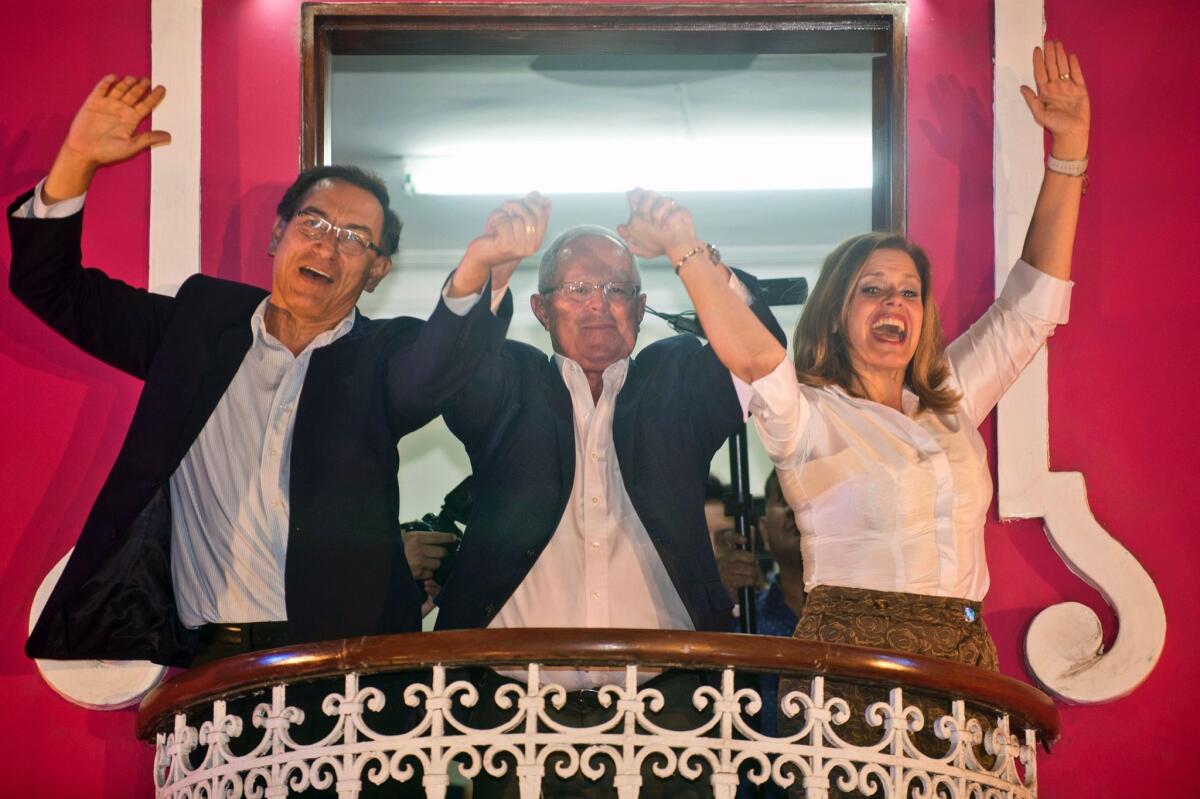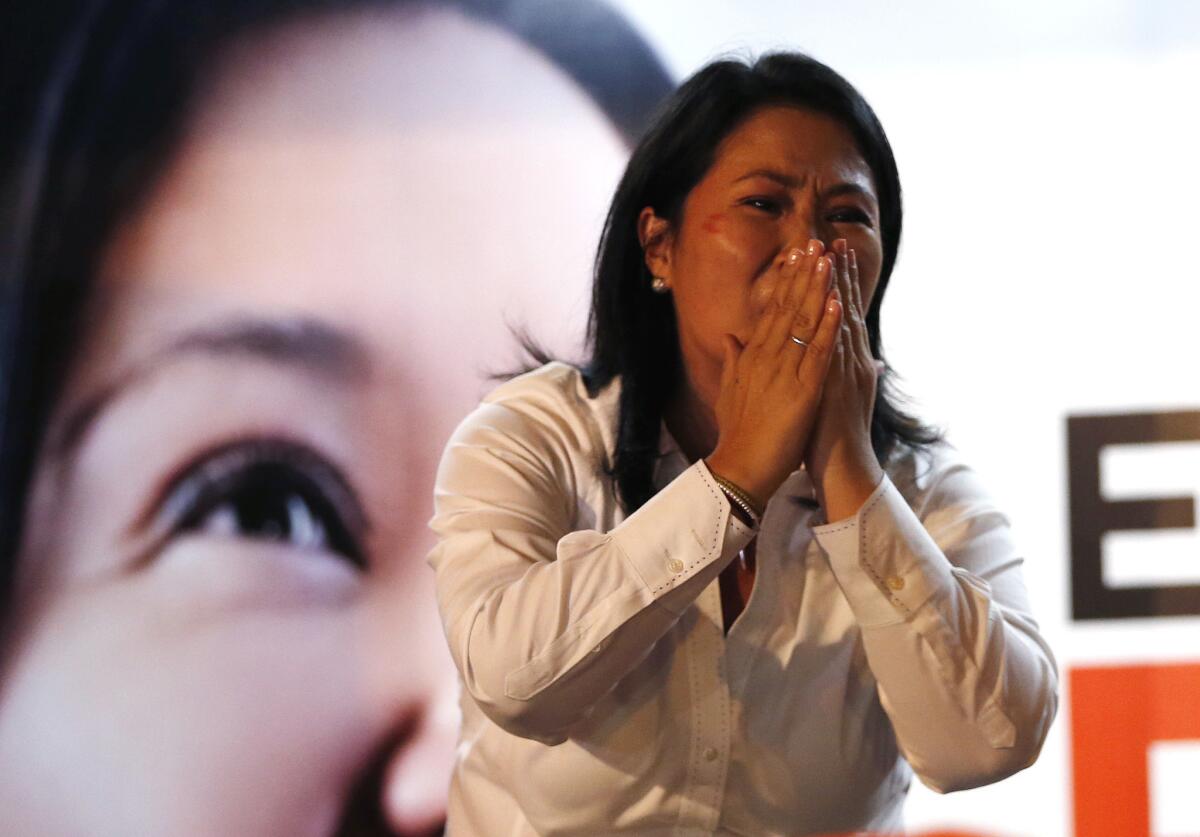Peru’s Keiko Fujimori trails in early returns in presidential election

- Share via
Reporting from Lima, Peru — Former Finance Minister Pedro Pablo Kuczynski took a slight early lead over Congresswoman Keiko Fujimori in Peru’s presidential balloting Sunday but final results won’t be available until Monday in what analysts are calling an extremely close election.
With slightly more than a third of votes counted, Kuczynski had 50.6% to Fujimori’s 49.4%. Two of three exit polls published after polls closed at 4 p.m. gave slight leads to Kuczynski, but analysts warned that Fujimori could benefit from a “hidden vote” in her favor.
Fujimori, 41, is trying to become the second member of her family to win the top office. Her father, Alberto Fujimori, served from 1990 to 2000 before being forced to resign amid bribery and eavesdropping scandals concerning his spymaster, Vladimiro Montesinos. Fujimori is now serving a 25-year prison term for corruption and human rights crimes.
Opinion polls indicated a victory was likely for Fujimori until about 10 days ago when Kuczynski started chipping away at her lead.
Boston University professor David Scott Palmer said Kuczynski’s late surge was due mainly to the cumulative effect of news reports asserting that Fujimori advisor Joaquin Ramirez was being investigated on suspicion of money laundering, he said. The scandal has reminded voters of the dark side of Fujimori name, Palmer said.
I and my neighbors voted for Keiko. We had no roads, electricity or schools where I lived in the mountains, only poverty. But her father helped us a lot.
— Juana Rosas Huamani, 45
Although the U.S. Drug Enforcement Administration issued a statement last month saying Fujimori was not being investigated, news reports have kept the scandal alive and “may have made people have second thoughts about voting for her,” Palmer said.
Still, many voters credit the imprisoned former president for improved security and economic reforms. Keiko Fujimori has attempted to leverage that part of her father’s record by promising to crack down on drug traffickers and petty criminals and build more prisons. As a congresswoman, she has built a broad support base in rural areas.
“I and my neighbors voted for Keiko,” said Juana Rosas Huamani, a 45-year-old domestic employee, after voting in Lima. “We had no roads, electricity or schools where I lived in the mountains, only poverty. But her father helped us a lot. She’s strong and young and won’t shrink from the criminals.”

Kuczynski, a 77-year-old former World Bank economist who served as finance minister during Peru’s commodities boom, has campaigned as a technocrat who could maintain the country’s strong economic performance. But PPK, as he is known to many Peruvians, also has hammered away at scandals during the elder Fujimori’s tenure.
Ximena Rossell, a 40-year-old caterer, said she voted for Kuczynski because “he knows how to make Peru better and because he is surrounded by very professional people. He is decent and honorable.”
Fujimori narrowly lost the presidency to Ollanta Humala in a 2011 runoff after winning the first round by a wide margin. Voter rejection of her father’s criminal past was cited as a primary reason for her failure to add sufficiently to her first round vote tally.
About 23 million people were eligible to vote in Peru, a country in which voting is mandatory. After casting his ballot, Humala noted that this was the fourth straight democratically held presidential election for Peru, the longest string of free voting since the early 19th century.
Special correspondents Kraul and Leon reported from Bogota, Colombia, and Lima, respectively.
ALSO
For an Afghan boy, Muhammad Ali was the ‘man of steel’
Scattered violence reported as Mexicans go to the polls for state elections
Islamic State’s Syrian capital becomes the prize in an international fight for legitimacy
More to Read
Sign up for Essential California
The most important California stories and recommendations in your inbox every morning.
You may occasionally receive promotional content from the Los Angeles Times.












